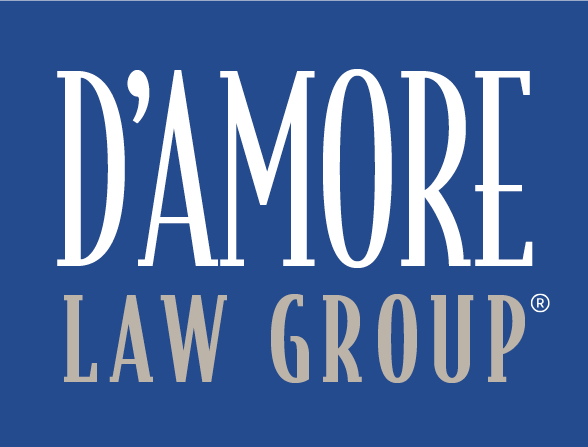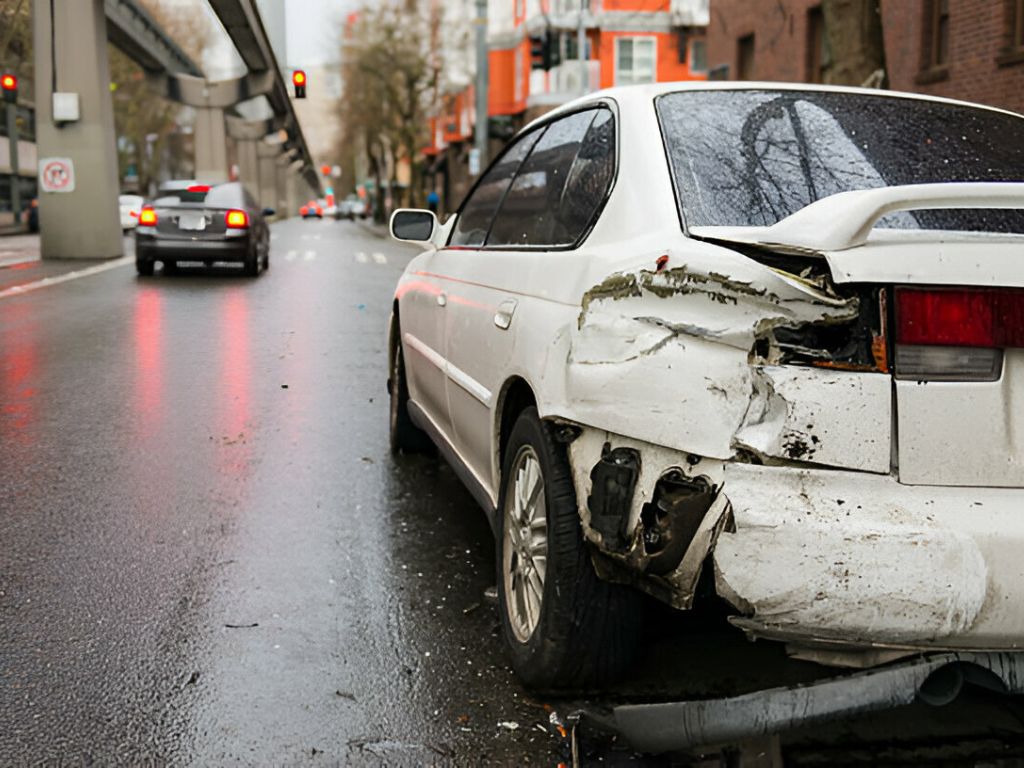What to Do After a Car or Bike Accident
An unexpected car or bike accident can turn an ordinary day into a life-changing event in seconds. In those critical moments, knowing what to do after a car accident or a bike crash can mean the difference between chaos and control, between protecting your rights and jeopardizing them. Every step you take after an accident—from ensuring your safety to documenting the incident—can significantly impact your recovery and ability to seek justice.
At D’Amore Law Group, we recognize that these times can leave you wondering what to do if you get in a car accident or are a biker hit by a car. With millions secured in verdicts and settlements and recognition as one of Oregon’s Top 50 Lawyers, Tom D’Amore and our team possess the skill and dedication to stand by your side. When your future is at stake, trust the firm that consistently produces results.
Contact us today at 503-222-6333 to discuss your case and learn how we can help you.
1. Prioritize Safety and Seek Medical Attention
The first step after a car or bike crash is to ensure your safety and that of others involved. If possible, move to a safe location away from traffic to prevent further harm. Turn on your hazard lights and, if available, use cones or other warning devices to alert other drivers.
After, assess whether you or anyone else involved requires medical assistance. Even if injuries seem minor, it’s essential to seek medical attention, as some conditions, such as concussions or internal injuries, may not be immediately visible. Medical evaluations can also provide critical evidence in future legal or insurance claims.
2. Contact Law Enforcement
In Oregon and Washington, reporting accidents involving injuries, fatalities, or significant property damage is generally required. Contact local law enforcement to report the incident. Officers will document the scene, gather witness statements, and create an official accident report, which can be a valuable resource during insurance claims or legal proceedings. Failing to report an accident per state law can result in penalties, so understanding these regulations is crucial.
3. Exchange Information
Exchange contact and insurance information with the other parties involved in the accident. Important details to collect include:
- Full names,
- Phone numbers,
- License plate numbers,
- Insurance providers; and
- Policy numbers.
If there are witnesses to the accident, collect their contact information, too. Witness testimony can be crucial for determining fault or clarifying details about the incident.
4. Document the Scene
Thoroughly documenting the accident scene is crucial for safeguarding your legal rights. Use your smartphone to capture photographs or videos of:
- Vehicle damage,
- Road conditions,
- Traffic signs or signals,
- Skid marks or debris, and
- Visible injuries.
Additionally, take notes on the time, date, weather conditions, and any other relevant details. Accurate documentation can bolster your case when working with insurance adjusters or seeking legal action.
5. Notify Your Insurance Company
Understanding what to do if you get in a car accident includes notifying your insurance company promptly. Provide a factual account of the accident, but refrain from discussing fault, as liability will be determined after a thorough investigation. Keep copies of all communications and documentation related to the claim, including any estimates for vehicle repairs or medical bills.
6. Understand Legal Requirements for Cyclists
Cyclists involved in accidents encounter unique challenges. If you are a biker hit by a car, it is essential to follow the steps mentioned earlier while also understanding that in both Oregon and Washington, cyclists have the same rights and responsibilities as drivers of motor vehicles and must adhere to traffic regulations while operating on public roads.
7. Seek Legal Advice
Navigating the aftermath of a car or bike accident can be complex, particularly when dealing with injuries, insurance disputes, or questions of liability. Consulting with an experienced attorney and asking, What should I do after a car accident? can provide clarity and help protect your rights. An attorney can assist with:
- Gathering evidence and evaluating the extent of your damages,
- Negotiating with insurance companies to secure a fair settlement, and
- Representing you in court if litigation becomes necessary.
In Oregon and Washington, specific statutes govern personal injury claims, including time limits for filing lawsuits. Consulting with legal counsel promptly can help you avoid missing important deadlines.
8. Preserve Evidence
Preserving evidence is critical when building a strong case. Try to maintain copies of the following:
- Medical records,
- Police reports,
- Correspondence with insurance companies, and
- Repair estimates for damaged property.
Refrain from repairing or disposing of damaged items, like bicycles or vehicles, until they have been thoroughly documented. This evidence can be crucial in determining fault and assessing damages.
9. Be Cautious with Insurance Adjusters
Insurance adjusters may contact you shortly after the accident to gather information. While cooperating is important, exercise caution when discussing the incident’s details. Avoid making statements they could interpret as admitting fault or minimizing your injuries. It is wise to consult an attorney before providing recorded statements or accepting settlement offers.
10. Know Your Rights and Responsibilities
Understanding your rights and responsibilities after an accident is essential for achieving a fair outcome. In Oregon and Washington, comparative negligence laws enable injured parties to recover damages even if they are partially at fault for the accident. However, compensation is typically reduced based on the percentage of fault assigned to each party. Consulting an attorney familiar with these state-specific laws can offer valuable guidance.
Knowing What to Do After a Car Accident Is Crucial
Knowing what to do after a car accident or a bike crash is essential for protecting your safety, preserving evidence, and safeguarding your legal rights. By following the steps outlined above, you can navigate the aftermath of an accident with greater confidence and clarity. Whether you are dealing with injuries, property damage, or insurance disputes, prompt and informed action is the key to achieving a fair resolution.
Call D’Amore Law Group Today
If you have been involved in a car or bike accident in Oregon or Washington, the skilled attorneys at D’Amore Law Group are ready to assist you. With a dedication to upholding justice for injured individuals and their families, our team can help you navigate the legal process and advocate for the compensation you deserve. Reach out to us today for a consultation.
Resources
Revised Code of Washington § 46.61.755, link
Oregon Revised Statutes § 12.110, link
Revised Code of Washington § 4.16.080, link
Oregon Revised Statutes § 31.600, link
Revised Code of Washington § 4.22.005, link
Oregon Revised Statutes § 814.400, link
Revised Code of Washington § 46.61.755, link

